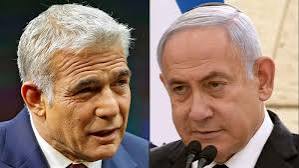Israel Facing Isolation: A Late Admission and Arrows of Criticism Towards Netanyahu
September 15, 202517 ViewsRead Time: 3 minutes

Font Size:
16
In a rare move with deep political implications, Israeli Prime Minister Benjamin Netanyahu admitted that the Gaza war has pushed Israel into a stifling international isolation, considering that the way to break it lies in "intensive investment" in media and propaganda influence operations through traditional and digital platforms. However, this admission, although late, opens the door to a broader reading of the decline of Israel's image in the world, and the explosive political debate at home regarding responsibility for this predicament.
Netanyahu, who tried to blame "European minorities" and "countries supporting anti-Zionist thought" like Qatar for the decline of Israel's image, deliberately ignored the essence of the crisis: a devastating war that left tens of thousands of victims in Gaza and triggered an unprecedented wave of condemnation in both the West and the East. The paradox is that the Prime Minister himself realizes — through his acknowledgment of the danger of economic sanctions and the erosion of foreign markets — that what Israel is facing is not merely a "propaganda campaign," but a structural crisis that strikes at the foundations of its political and economic project.
But more dangerous than the admission is what Netanyahu revealed about his plans to confront the crisis: enhancing self-isolation, reducing reliance on foreign trade, and investing more in military industries, which means entrenching the logic of the "fortress state," separated from its international surroundings, and relying on military power as a backbone for its continuity. This trend reflects not only a concern about economic siege but also a blockage of the political horizon, as any talk of settlement or review of the course of the war is absent.
In contrast, opposition leader Yair Lapid did not hesitate to direct arrows of criticism, accusing Netanyahu of destroying Israel's status and turning it into a "third world country." Lapid, who is trying to outline a political alternative based on reintegration into the global economy, sees what is happening as a direct result of the "policy of failure and isolation" adopted by the Prime Minister.
On the economic level, the testimony of eighty economists confirmed that the cost of direct occupation of Gaza will push Israel towards a stifling financial crisis, due to military bleeding and European sanctions. This warning does not only pertain to the economy, but also affects Israel's geopolitical position as a reliable Western ally, a position that is gradually eroding under the pressure of international public opinion.
The current scene reveals Israel as an entity facing the most dangerous strategic challenge in decades: escalating international isolation, intense internal division, and an economy heading towards contraction. While Netanyahu bets on "propaganda resistance," his opponents realize that the real conflict is no longer in the field of media, but in the field of political and moral legitimacy. In this arena, it seems that Israel is losing the battle for image and status at an accelerating pace.
Netanyahu's admission of isolation is not just a political slip of the tongue, but a clear declaration of Israel entering a phase of international exposure, where propaganda can no longer hide the effects of the catastrophic Gaza war. Between the logic of the "fortress state" adopted by Netanyahu and the vision of the "open state" advocated by Lapid, the question remains: Can Israel break the cycle of isolation or is it steadily moving towards long-term strategic isolation?